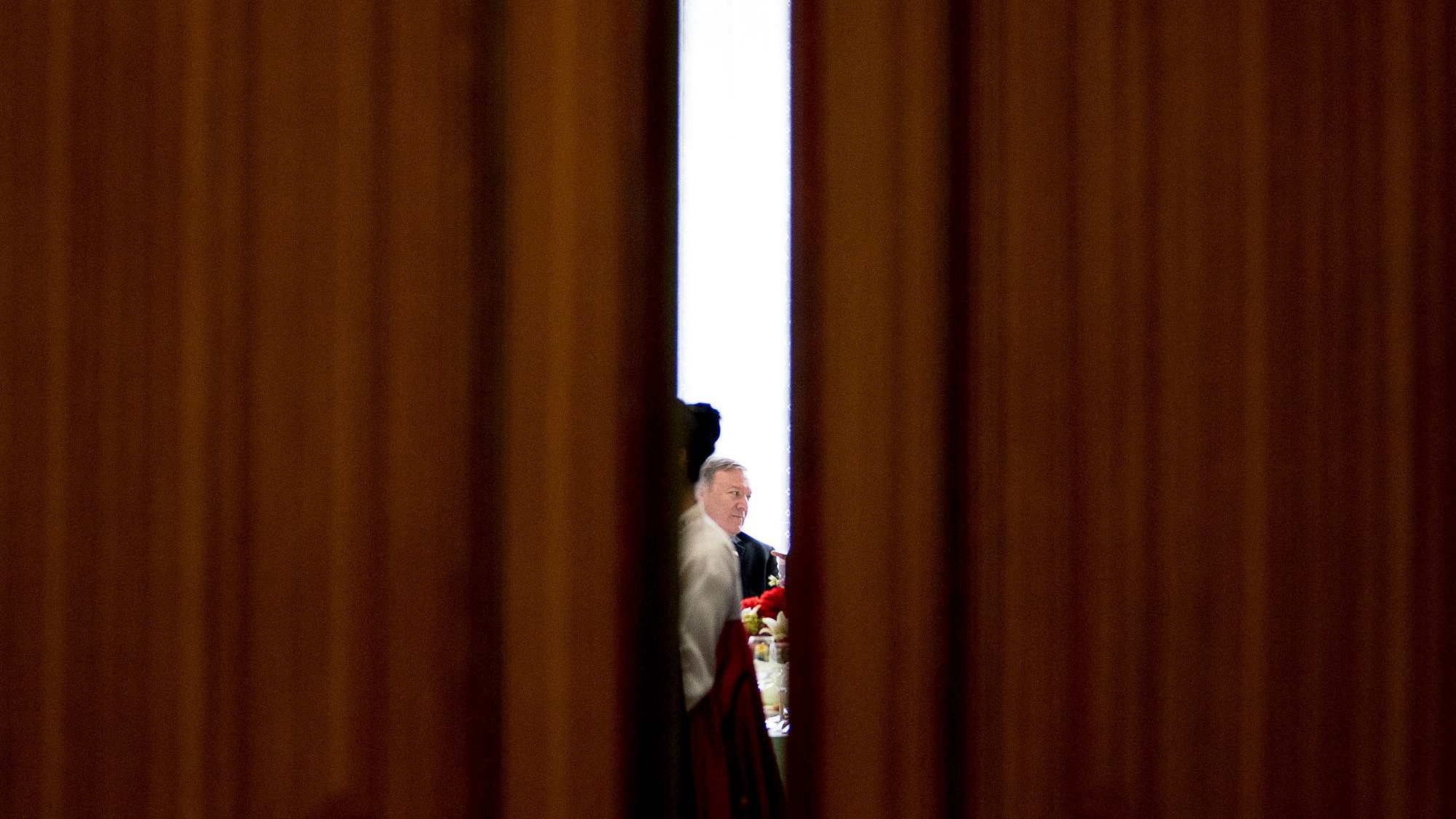
(Photo: CGTN)
One can only aspire that the denuclearization of Democratic People’s Republic of Korea (DPRK) could be as easy as eating a pie.
Getting a Nobel Peace prize doesn't come by simply organizing a summit, historical as it is, or saying "You have done a great job" to overwhelming applause.
The denuclearization process on the Korean Peninsula is no easy task, especially when there's no clear definition of what "denuclearization" entails.
Trump knows the difficulty of the task. He had said that in Singapore, where he met DPRK leader Kim Jong Un in June. He even shared an anecdote with his uncle, John G Trump, an electrical engineer from the Massachusetts Institute of Technology (MIT), about how difficult the process is. But once the process starts and reaches a certain phase, there's a substantial hope as reversing it becomes hard.
US accused of being a 'gangster’
But is denuclearization possible through a 'gangster like mindset' as Pyongyang has accused the United States of doing?
Following the recent talks between US Secretary of State Mike Pompeo and top DPRK negotiator Kim Yong Chol in Pyongyang, the latter expressed regret over Washington's unwillingness to meet halfway.
Diplomacy has entered a "dangerous phase that might rattle our willingness for denuclearization," said Kim, accusing the US of making "gangster-like“ demands. The statement gave a contradictory account to what Pompeo had announced about productive negotiations.
Meanwhile, Japanese Premier Shinzo Abe praised Pompeo for his "gangster-like demands" and termed them a demonstration of strong leadership.
China’s role in denuclearization
The spokesperson for China's Foreign Ministry Hua Chunying highlighted on July 9 China’s consistent role in the peace and denuclearization processes on the Korean Peninsula.
China has rejected allegations made by US Senator Lindsey Graham that Beijing was behind Pyongyang's tough attitude. But pointing fingers and blaming others are nothing new to the US as this strategy has always been easier than admitting diplomatic failure.
China has been playing a vital role in the denuclearization process of the Korean Peninsula, a contribution that was appreciated by Trump himself. He repeatedly mentioned and praised Chinese President Xi Jinping for his role in bringing the DPRK back to the negotiating table.
China will continue to play a positive role in making constructive contributions to realizing the denuclearization of the Peninsula and achieving long-lasting peace and stability of the whole region.
DPRK's denuclearization package
The DPRK has stated that the unilateral US demand of a complete, verifiable and irreversible dismantlement (CVID) of DPRK's nuclear arsenal goes against the spirit of the Trump-Kim meeting in Singapore.
This is a very powerful message by Pyongyang that nothing could possibly be achieved from the DPRK side without something solid coming out from the US.
What does the US have to offer in exchange for the denuclearization of the DPRK? Is there any package like a Joint Comprehensive Plan of Action (JCPOA) which the US and its allies have made for the DPRK? Or will the DPRK just give up its nuclear program voluntarily (something that seems impossible)? These are the questions to which no one has an answer so far.
"We have displayed patience at its maximum and watched the US while initiating goodwill steps as many times as we can. But, it seems that the US misunderstood our goodwill and patience," Pyongyang has warned.
According to this statement, one can well understand that the DPRK believes it has done a lot and now it’s the time for the US and its partners to come forward with something in return.
The lack of trust between the US and the DPRK is another major concern which Pyongyang has raised and should be addressed through new confidence-building measures.
The road to the denuclearization of the Peninsula will be bumpy, with more ups and downs and turns and twists in the future.
But the process can at least begin if the US ditches its "gangster-like" mindset and offers something solid in return for the DPRK's efforts.


